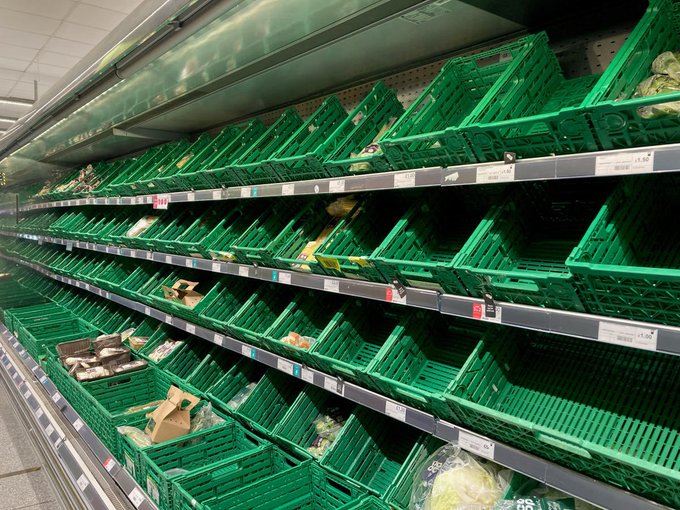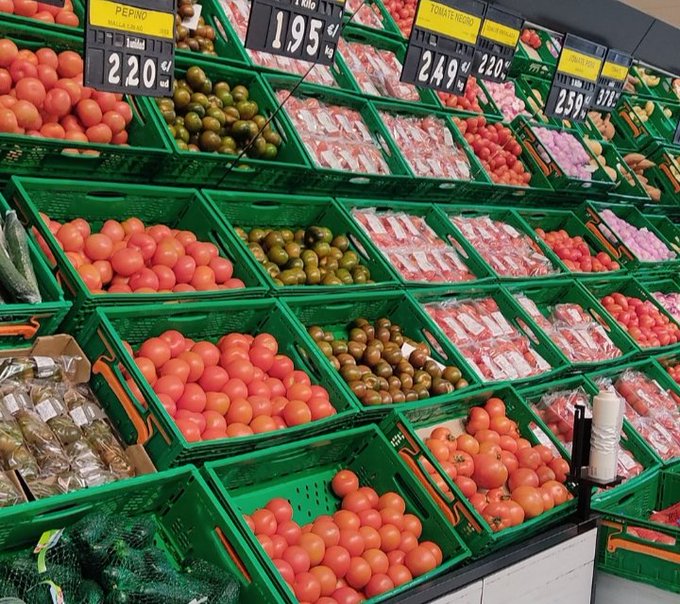

The UK currently has shortages of tomatoes, cucumbers, lettuces and other salad crops. The government and BBC are pushing the line that these shortages are due to poor weather in Morocco and Spain. This has been a factor, but a very minor part of the reason for our shortages. The entire EU has an abundance of these salad crops, and even in Kherson on the frontline of the war in Ukraine has plenty. So: why the shortage here?
Brexit is largely to blame. Holland, which grows salad crops for export in heated greenhouses, has plenty, but Brexit red tape means Dutch lorry drivers, who often have to queue for up to 77 hours, are refusing to drive to the UK. We could grow our own but as the UK energy costs are somewhat higher than average EU energy prices it is often uneconomic to heat greenhouses here, and this is compounded by the shortage of agricultural workers now that Brexit has forced so many East Europeans to leave. Ukraine meanwhile has open access to the EU’s single market and so it is has tomatoes and the rest in plentiful supply.
We could of course re-structure our energy market to be more in line with the EU. That would make energy costs cheaper, but reduce corporate profits, and our government is firmly on the side of maximizing corporate profits, even if it means impoverishing UK citizens.
Traditionally we did not eat many out of season crops. Tomatoes, cucumbers and lettuces were mainly harvested in the summer and autumn. To have such crops in February is either done by bringing the produce from southern Europe or Morocco, or growing in the UK or Holland in heated greenhouses, any of which usually mean high carbon footprints.
It is possible, but almost never done, to grow tomatoes and salad crops in the UK in greenhouses that do not result in carbon emissions. The New Alchemy Institute pioneered greenhouses with very high thermal mass, and solar thermal panels way back in 1976 on Prince Edward Island in Canada. Now with cheap solar and wind power, we could add utilizing surplus wind energy to heat giant hot water stores under greenhouses. Technologically this is feasible. Iceland pioneered using geothermal heat to grow bananas, a much more heat demanding crop than tomatoes. Greenhouse technology has great potential to feed more of humanity, but it needs sensible governments that want to promote ecologically and economically sustainable practices. Our government is obsessed with the delusion of Brexit, nostalgia for empire, putting corporate profits over ordinary people, and cares not a jot for true sustainability.
James Rebanks, the author and regenerative farmer, tweeted: ‘Being a farmer in Britain right now is like being trapped in the back of stolen car driven at high speed by a driver who’s high on drugs and oblivious to the obstacles ahead… and all the time shouting absolute gibberish at you from the front seats’. Therese Coffey is currently the British Secretary of State for Environment, Food and Rural Affairs, and she is certainly shouting absolute gibberish.
Oh, for a government that actually cared for the people and the planet, and a BBC that actually wanted to speak the truth!


